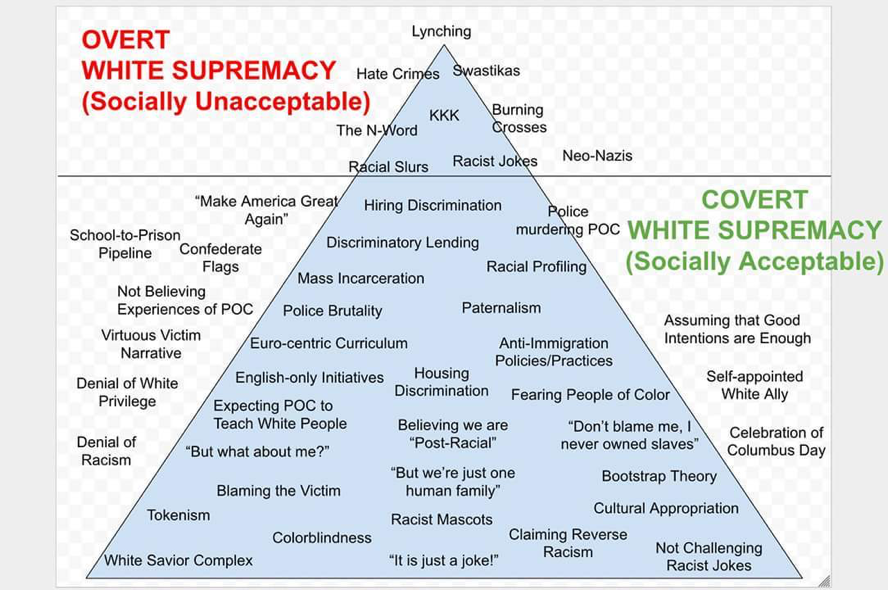White Supremacy
Along with neo-colonialist politics and capitalist economic policies that maintain global poverty and inequality, white supremacy completes the trifecta of systemic injustice that establishes a power imbalance and lack of respect for so-called “developing” countries.
Originally, the term “white supremacy” was used to identify overt racist behaviors and organizations like the KKK, with the declared intent and belief that whites should retain and increase political and cultural power. More recently, sociologists have begun to encourage us to think of white supremacy as an ideology, as a collection of ideas that encourage us to value whiteness (white norms, white culture and white people) more highly and above other cultures.
Some people push back on the idea of using the term white supremacy to describe our current challenges with systemic racism; they point to the so-called alt-right’s hateful anti-immigration and racist language instead. This is tricky: though it’s true that white nationalists are trying to normalize white supremacist language in the mainstream media, and were invigorated by Trump’s campaign and election, it’s also true that a broader understanding of white supremacy helps us understand the way that it is embedded in all of our systems and institutions.
Consider the following graphic, developed by Safehouse Progressive Alliance for Nonviolence (2005) and adapted by Ellen Tuzzolo (2016):

If we see white supremacy as a collection of ideas that values whiteness over other cultures, then we can begin to explore how the status quo is maintained in institutions with well-intentioned people who do not consider themselves racist.
Reflect
Discussion questions for white folks:
- What is your reaction to the idea of white supremacy as an ideology?
- Where do you see white supremacy play out in institutions to which you belong?
- How might unexamined white supremacy affect your journey with the UUCSJ?
Discussion questions for folks of color:
- What is your reaction to the idea of white supremacy as an ideology?
- What have you found to be useful tools to notice and combat internalized messages of white supremacy?
- How might internalized white supremacy affect your connection/create distance with members of the global majority during your UUCSJ journey?

